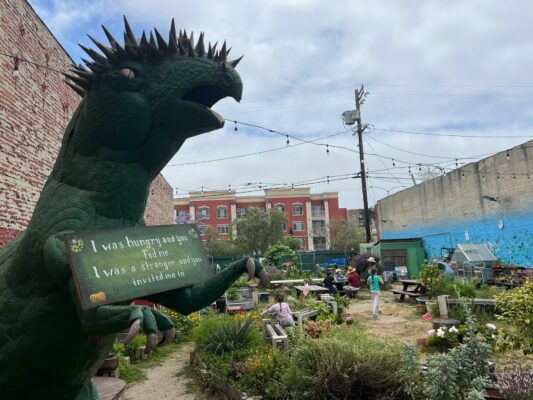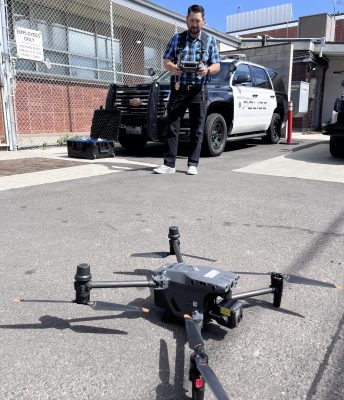
Jimmie Vaughan was a skinny little seventh grader in Dallas, Texas, when one day his buddy laid it on the line for him.
“If you want to get girls,” his friend said, “you are going to have to play football.”
He didn’t know much about the game but he liked girls an awfully lot so he signed up to play. His buddy suggested – pretty wrongly, as it turned out – that since he was small, Vaughn should play halfback. So the very first day of practice the coach put him at halfback and he ran the ball a couple of times only to get absolutely smothered by big kids.
“I ran with the ball and all these people jumped on and I broke my collarbone,” Vaughan recalled. “I went home and I had that weenie thing, that bandage, that held your arm up.”
It was a tackle that would change the history of American music. Since he was going to be laid up a few months, his father and a family friend gave Vaughan an old beat up guitar. It was a Kay Craftsman guitar – probably from Sears – and it only had three strings.
“They were thinking it would keep me out of trouble, and I’ve been playing ever since,” Vaughan said. “I love football for that reason.”
The keeping out of trouble part didn’t exactly go according to plan. Vaughan left home only a few years later, at the age of 15, and joined a band as its lead guitar player. Before leaving home, he also bequeathed a few things to his tag-along little brother Stevie that would have lasting impact – a guitar, a love of the blues, and a Jimi Hendrix record.
“One thing about it,” Vaughan said, “anybody who’s got a brother or sister – little brothers do what big brothers do. I mean, anywhere, most of the time. I am four years older than him so when I started playing he was just a little kid and he watched me learn. And then my parents, when I ran off, said, ‘Okay, we are cracking down on little brother here, because we don’t want him doing what big brother did.’ So that just made him try harder.”
The rest is history. Stevie Ray Vaughan, before his untimely death in a helicopter crash in 1990, became perhaps the most explosively creative guitar player since Hendrix. Jimmie Vaughan, who would later open for Hendrix as an 18-year-old (and sell Jimi a wah-wah pedal for $50) in 1969, would go on to form a band, the Fabulous Thunderbirds, that would do more to bring blues music back to mainstream radio than any band since the 1950s.
Tragically, the brothers had only recorded an album together just before Stevie’s departure – 1990’s Family Style – and afterwards Jimmie Vaughan did not appear in public again for four years. Finally, he was coaxed back into performing by his friend Eric Clapton, and he has since released a series of solo albums that feature his beautifully understated guitar work and growing vocal chops.
Somehow, however, Vaughan has remained as underrated as a player as is possible for a two-time Grammy winner who routinely shares the stage with acknowledged masters such as B.B. King, Buddy Guy, and Clapton. It certainly has something to with his brother. Whereas Stevie Ray was known to appear on stage in Indian headdresses and feathered hats and create Hendrix-tinged walls of sound, Jimmie Vaughan has stayed remarkably true to his first loves. He restores old cars from the ‘50s, has a sharp, elegant fashion sense also borrowed from that era, and plays clean, concise guitar lines reminiscent of guitar heroes from that time, such as Freddy King and T-Bone Walker.
“I like the clothes, I like everything from then,” Vaughan said. “It just seemed like a more artistic, less confused, less jumbled up world – in music, anyway, and art.”
Music, Vaughan says, should speak in sentences.
“The main thing I love about that is people used to, in music – they had phrasing,” he said. “They didn’t play all the time. I mean, like a guy would just take a solo and it wouldn’t be one continuous riff from beginning to end. They would stop, and pause. Because if you don’t have a pause, you can’t hear what you just did. If you have a phrase, and you play it and you stop, there is that pause where your guts feel what just happened. It’s a delayed thing, right? Guys these days just don’t stop. It’s like a trick, and after you learn the trick, it’s no big deal – it’s just a trick.”
At the beginning of his career, Vaughan had a dream. He was sitting in a “roundy round” with all his heroes – Muddy Waters, Buddy Guy, B.B King, Gatemouth Brown – and they were all playing in turn. Then it came to him, and he realized: what the hell was he going to play? He couldn’t just do what they did. He needed his own style. Later, he would not only play with each one of those players, but he would be able to stand on stage with them, shoulder-to-shoulder, as his own man.
What he learned was a simple but profoundly deep lesson: he had to play what he wanted to hear.
“Don’t get me wrong, I’ve learned and I stole from the best,” he said. “I’ve devoured Magic Sam and B.B. and Buddy and Lonnie Mack and Chuck Berry and the Ventures and whatever was on the radio. I had Bill Doggett playing honky-tonk, and those are all the things which I still play today. I actually play like that now, that kind of music, but it took me a long time to figure it out. Put on a Freddy King record and play it and it sounds like Freddy knows what he’s going to play. It doesn’t sound like he’s searching, and I don’t think he was. So how do you get to that spot? I’ve always been a student of that.”
“I don’t know. It’s funny. I mean, I never expected and never went out to be a popular entertainer and I made it. It just started out doing something you weren’t supposed to do at that time anyway. So I would just say to anybody: play what you want to hear and do what you want to do, because there is enough of the other assholes, right?”
Jimmie Vaughan headlines the second night of the LA Guitar Festival on Sunday night at the Redondo Beach Performing Arts Center. Also featured that night are Dick Dale, Bruce Forman, and Ben Lacy. See www.laguitarfestival.com.










